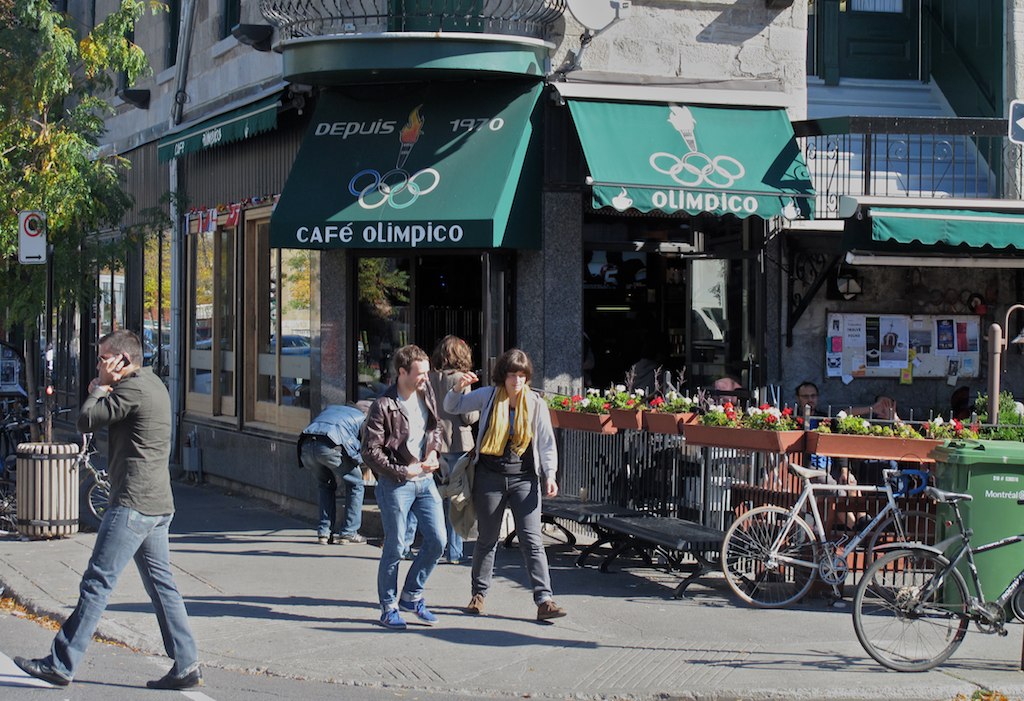If there were a map to artsy, Instagram-worthy spots in Montreal, surely the iconic Mile End neighbourhood would be a big red dot. From the European-styled bagel shops and street merchants, to the eccentric vintage clothing stores and bustling record stores, Mile End has stood as one of Montreal’s cultural hotspots for decades. But what has stood out most about Mile End over the years is the entrepreneurial spirit that fills its streets, and has inspired Montrealers to create their own local brands.
Home to the original St. Viateur Bagel, one of the highest ranked bagel shops in all of Canada, as well as the first Frank and Oak brick-and-mortar store, the prevalent merchant culture of the area grants it a vibe so rare that even shows like Quantico have used the area as a shoe-in for New York City. However, as with most areas in Canada these days, as rent prices across the city rise like never before, Mile End may soon lose some of its charm.
It’s no secret that the real estate market in Montreal has been soaring in recent years. Just in 2019, the average home price rose to C$349,300, up 6.3% from the previous year with rental vacancies dropping by almost 3% over the past three years. Naturally, this increase in residential housing prices has had an effect on commercial real estate as well, and business owners are starting to feel it. But while the problem is in part due to the natural rate of inflation of real estate, to merchants across the city the true culprit comes in the form of greedy landlords.
…as with most areas in Canada these days, as rent prices across the city rise like never before, Mile End may soon lose some of its charm.
De Gaulle Helou, owner of the highly coveted Patisserie Chez De Gaulle, which has stood on a corner of Rue St. Viateur for more than 10 years, has said that just in the last 3 years, his rent has been tripled from $1,950 per month to almost $6,500. “They were demanding I invest $50,000 towards renovation that would enhance the rental value of the space,” he said. “And they wanted five months rent in advance. Who’s going to pay that?” As a result, Helou was forced to move his establishment to St-Jean-sur-Richelieu, miles across the city – and he’s not alone.
To Helou and many others, the responsible party is real estate firm Shiller-Lavy Realties. In recent years, the company has been scooping up properties across Mile End, and their tenants have seen their rents increase like wildfire. Not long after Shiller Lavy’s acquisition of their buildings, Montreal favorites like Colombian restaurant Mi Corazon, as well as Socialito and Tucci, have all seen closures. As a result, vacant spaces and signs that say “Mile End is Dead” now line Rue St. Viateur, one of the trendiest roads in Canada.
According to commercial consultant Glenn Castanheira though, vacancies are what Montreal real estate firms want. “Many landlords that speculate prefer to keep the building vacant or wait for a bigger banner to come in and pay twice what the rent normally is,” he said. “It’s the wild west out there.” And so far, Shiller-Lavy has been killing the game. Just last year, global fitness apparel giant Lululemon moved into a space owned by the firm right across the street from St.-Viateur Bagels, a shop that has been in operation since 1996.
As a result, vacant spaces and signs that say “Mile End is Dead” now line Rue St. Viateur, one of the trendiest roads in Canada.
To the residents of the area, places like Lululemon and newly opened A&W stick out like a sore thumb. Projet Montreal Councilor for the neighborhood, Marie Plourde, believes that retail giants have no place in the area. “Does (LuluLemon) look like Mile End?” she said. “I don’t understand. I have nothing against the line… They pushed out two businesses to make the store (on St. Viateur).”
While this opinion is shared by many in the area, from shop owners to city planners, in their minds, there isn’t much that can be done. “We can’t stop people from buying buildings,” Plourde said, “It’s free enterprise, and that would go against all kinds of things.” As it stands, Quebec as a province lacks comprehensive regulation when it comes to commercial leases. Simply put, if a firm like Shiller-Lavy has the money to purchase a building, they can. And with this come the rights to managing the rent, tenants, and renovations of the building. But in spite of the hurdles, Plourde still hasn’t lost hope. “The neighborhood has always been very resilient. It has always survived… the residents of the area are involved.” And for the sake of Montrealers and tourists, one can only hope she’s right.








